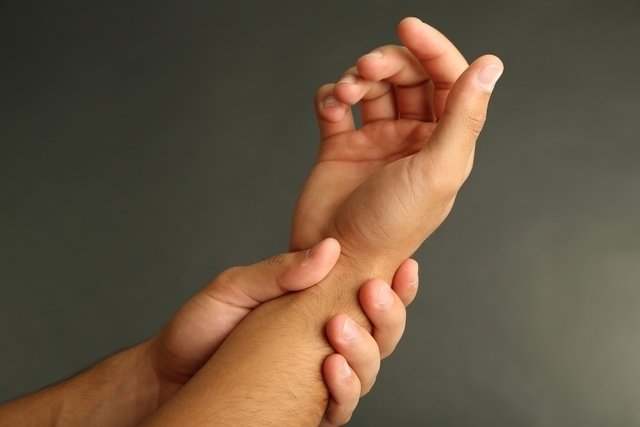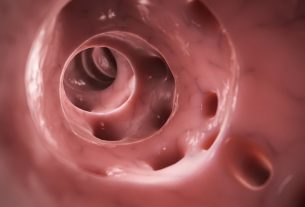The main symptoms of Zika are low fever, pain in muscles and joints, as well as redness in the eyes and red spots on the skin, and can appear up to 10 days after infection with the virus.
Zika virus is normally transmitted through mosquito bites, but there are also cases of people becoming infected through sexual contact without a condom. One of the biggest complications of this disease occurs when the pregnant woman is infected with the virus, which can cause microcephaly in the baby. Learn more about zika.
The symptoms of Zika are similar to those of Dengue, however, the Zika virus is weaker and therefore, the symptoms are milder and disappear within 4 to 7 days.

Symptoms of Zika
The main symptoms of Zika are:
1. Low fever
Low fever, which can vary between 37.8°C and 38.5°C, occurs because when the virus enters the body there is an increase in the production of antibodies and this increase raises the body temperature. Therefore, fever should not be seen as something bad, but as a sign that antibodies are working to fight the invading agent.
How to relieve: in addition to the remedies recommended by your doctor, it may be useful to avoid very warm clothing, take a slightly warm shower to adjust your skin temperature and place cold cloths on the back of your neck and armpits to reduce your body temperature.
2. Red spots on the skin
These occur throughout the body and are slightly elevated. They start on the face and then spread throughout the body and can sometimes be confused with measles or dengue, for example. At the medical center, performing the snare test can differentiate the symptoms of dengue, as the result will always be negative in the case of Zika. Unlike dengue, Zika does not cause bleeding complications.
3. Itchy body
In addition to small spots on the skin, Zika also causes itchy skin in most cases, however the itching tends to subside within 5 days and can be treated with antihistamines prescribed by your doctor.
How to relieve: Taking cold showers can also help relieve itching. Applying cornstarch or fine oatmeal to the most affected areas can also help control this symptom.
4. Joint and muscle pain
The pain caused by Zika affects all muscles in the body, and occurs mainly in the small joints of the hands and feet. Furthermore, the region may become slightly swollen and red, as also occurs in the case of arthritis. The pain may be more intense when moving, and less painful when at rest.
How to relieve: medicines such as Paracetamol and Dipirone are useful for relieving this pain, but cold compresses can also help to de-swell the joints, relieving pain and discomfort, in addition, you should rest whenever possible.
5. Headache
The headache caused by Zika mainly affects the back of the eyes, the person may have the sensation that the head is throbbing, but in some people the headache is not very strong or non-existent.
How to relieve: Placing cold water compresses on your forehead and drinking warm chamomile tea can help alleviate this discomfort.
6. Physical and mental fatigue
With the immune system acting against the virus, there is greater energy expenditure and consequently the person feels more tired, with difficulty moving and concentrating. This occurs as a form of protection so that the person can rest and the body can focus on fighting the virus.
How to relieve: you should rest as much as possible, drink plenty of water and oral rehydration serum, similar to the amount recommended for dengue treatment, and evaluate the possibility of not attending school or work.
7. Redness and sensitivity in the eyes
This redness is caused by increased periorbital blood circulation. Despite being similar to conjunctivitis there is no yellowish discharge, although there may be a slight increase in tear production. Additionally, your eyes are more sensitive to daylight and it may be more comfortable to wear sunglasses.
What to do in case of suspicion
When there is a suspicion of having Zika, it is recommended to go to the hospital immediately so that the doctor can observe the symptoms and assess whether they may be caused by the Zika virus.
In addition, the doctor may also order some tests to ensure that there is no other disease that could be causing the same symptoms.
Bibliography
- PINTO JUNIOR, Vitor Laerte et al.. Zika Virus: Review for Clinicians. Scientific Journal of the Medical Association. Vol.28, n.6. 760-765, 2015
- CDC. Zika virus: symptoms. Available at: <https://www.cdc.gov/zika/symptoms/symptoms.html>. Accessed on 09 Dec 2019
- CDC. Zika virus: Zika transmission. Available at: <https://www.cdc.gov/zika/prevention/transmission-methods.html>. Accessed on 09 Dec 2019

Sign up for our newsletter and stay up to date with exclusive news
that can transform your routine!
Warning: Undefined array key "title" in /home/storelat/public_html/wp-content/plugins/link-whisper-premium/templates/frontend/related-posts.php on line 12
Warning: Undefined array key "title_tag" in /home/storelat/public_html/wp-content/plugins/link-whisper-premium/templates/frontend/related-posts.php on line 13




